Products

Industrial
Salinor
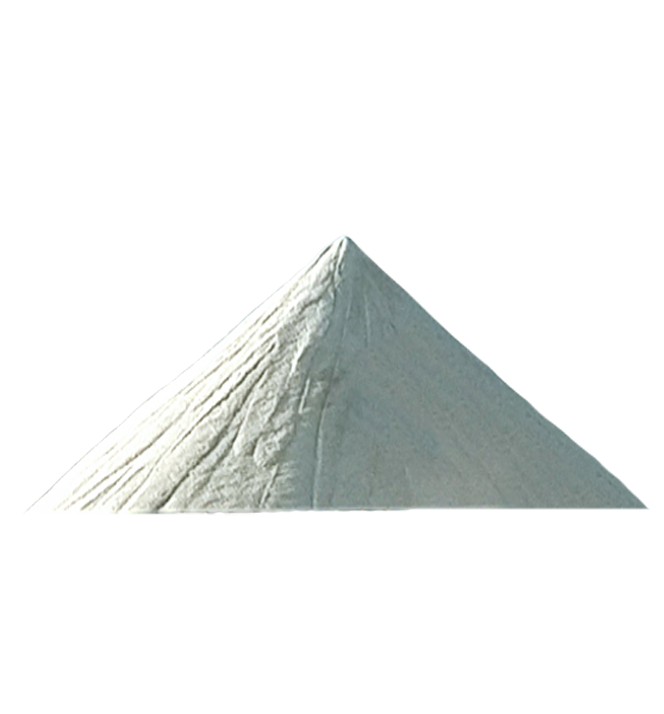
Salinor
| Coarse |
no iodine
|
Salinor
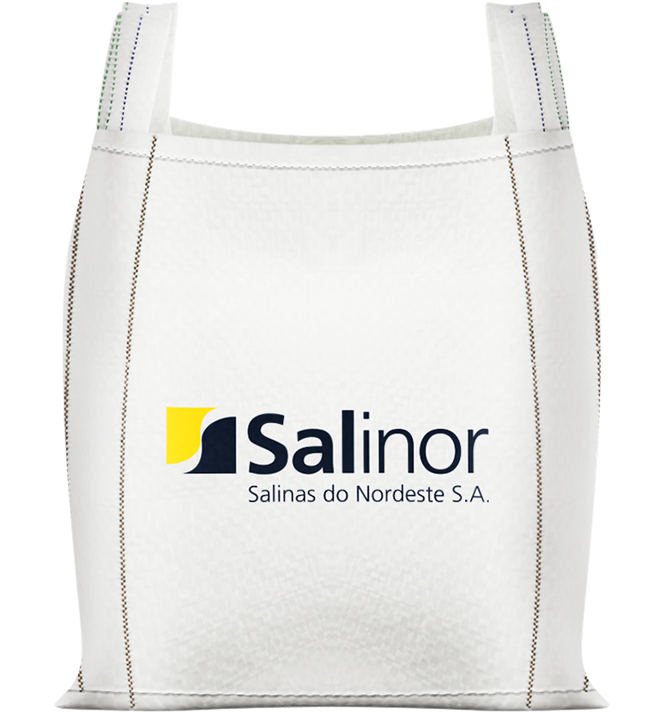
Salinor
| Ground |
with iodine
|
no iodine
|
| Crushed |
with iodine
|
no iodine
|
| Granulated |
with iodine
|
no iodine
|
| Refined |
with iodine
|
no iodine
|
| Coarse |
no iodine
|
Salinor

Salinor
| Ground |
with iodine
|
no iodine
|
| Coarse |
no iodine
|
Monarca
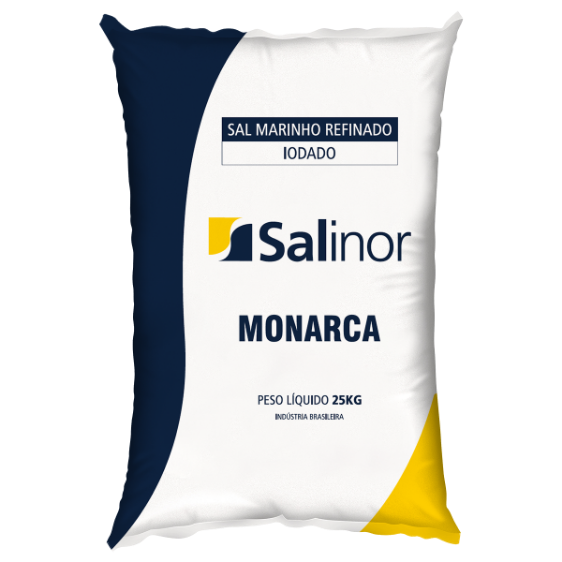
Monarca
| Refined |
with iodine
|
Monarca
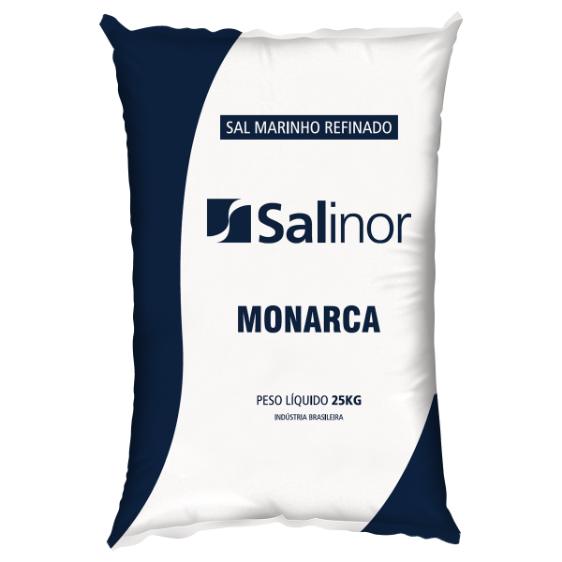
Monarca
| Refined |
no iodine
|
Monarca
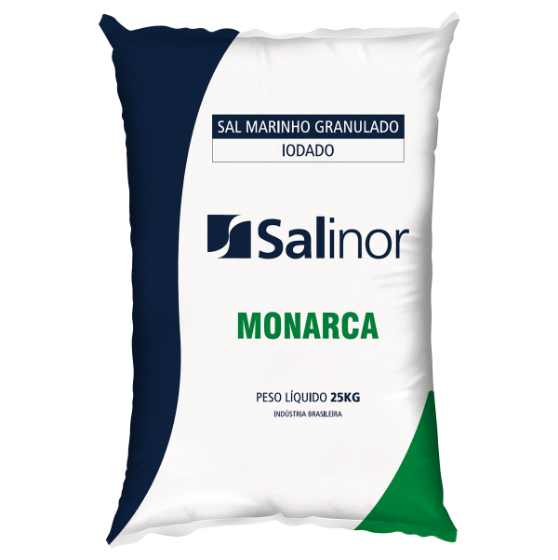
Monarca
| Granulated |
with iodine
|
Monarca
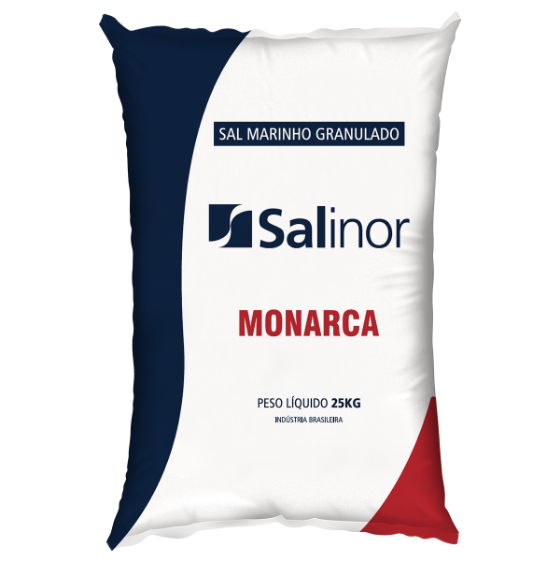
Monarca
| Granulated |
no iodine
|

Livestock
Boiadeiro
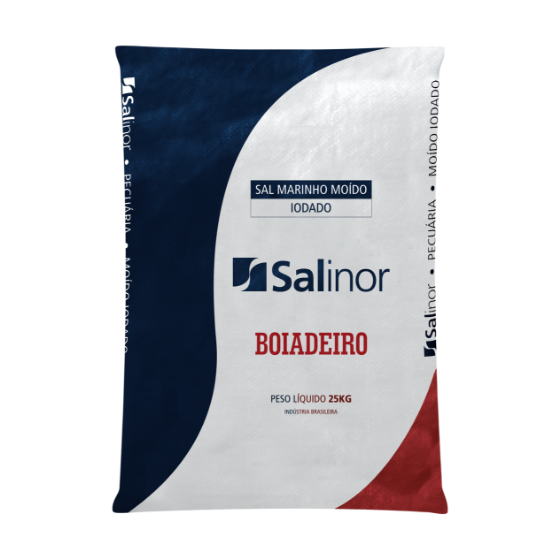
Boiadeiro
| Ground |
with iodine
|
| Coarse |
no iodine
|
Ema
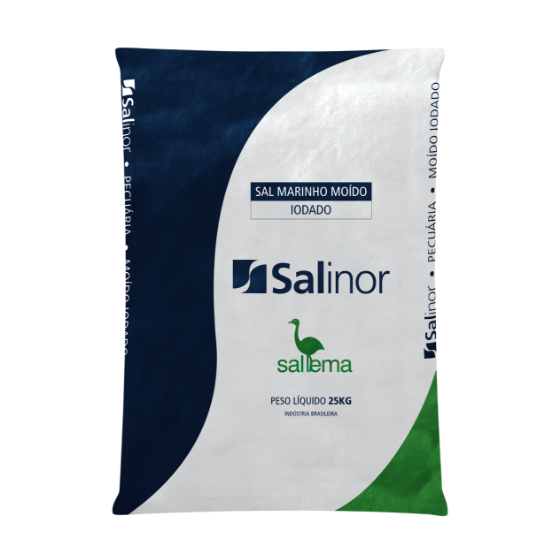
Ema
| Ground |
with iodine
|
| Coarse |
no iodine
|
Luzente
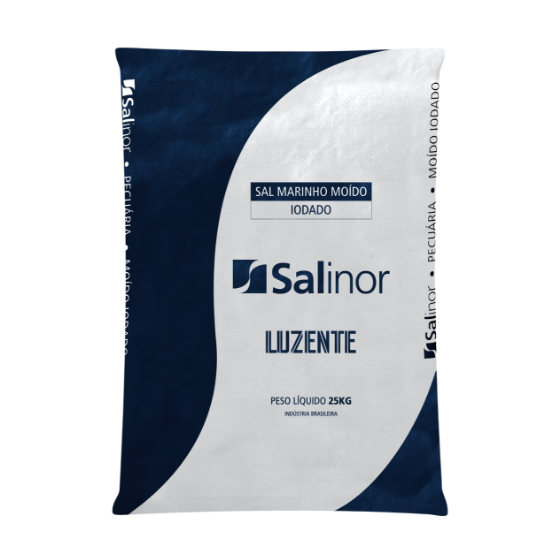
Luzente
| Ground |
with iodine
|
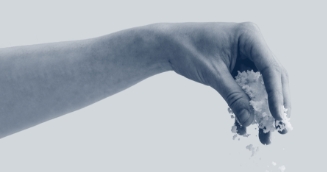
Human Consumption
Marlin
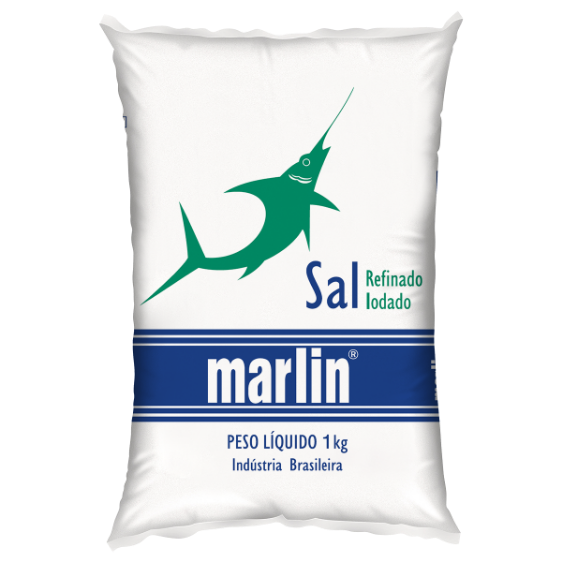
Marlin
| Refined |
with iodine
|
Marlin
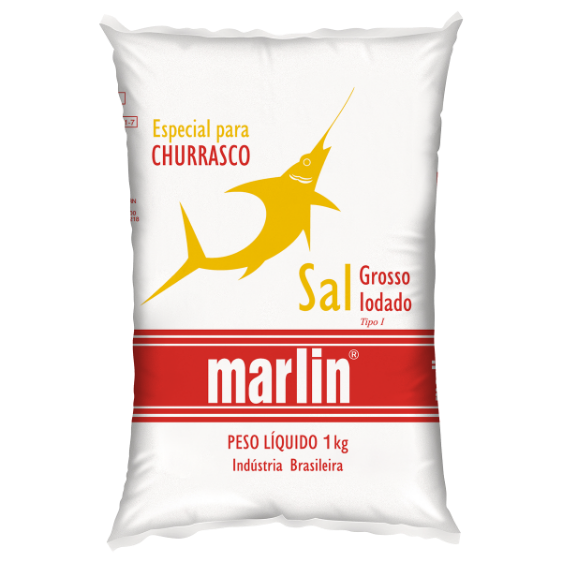
Marlin
| Coarse |
with iodine
|
Nevado
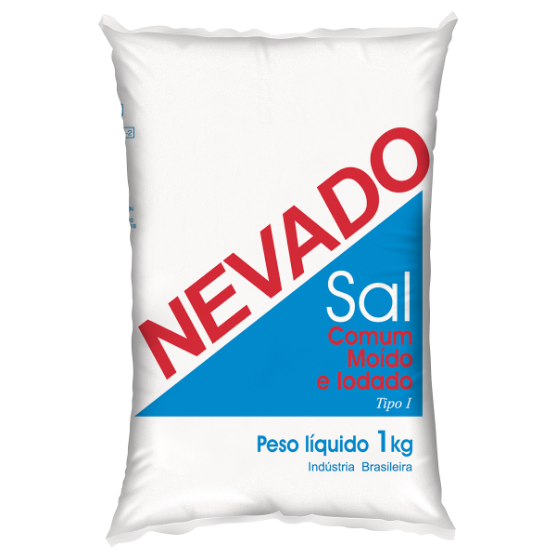
Nevado
| Ground |
with iodine
|


The Importance of Iodized Salt
Salt balances the aqueous system of our body, facilitating the exchange of water between cells and their external environment, aiding in the absorption of nutrients and the elimination of debris, contributing to good digestion, energy production and good renal function, besides beingvery important for those who regularly exercise, as it helps to replace the sodium lost with sweat. The ideal salt intake for humans is 2 to 4 grams (one teaspoon) per day.
Iodine is a mineral used by the thyroid gland to produce hormones that regulate growth, development and metabolism. The lack of iodine in the body can cause severe and irreversible mental retardation in children, deafness, congenital anomalies and goiter, an enlargement of the thyroid gland.
A law from year 1956 requires the addition of iodine (usually in the form of potassium iodate) to table salt, as it is a product consumed by everyone. The Ministry of Health considers 20 to 60 mg of iodine per kilogram of salt suitable for human consumption.

